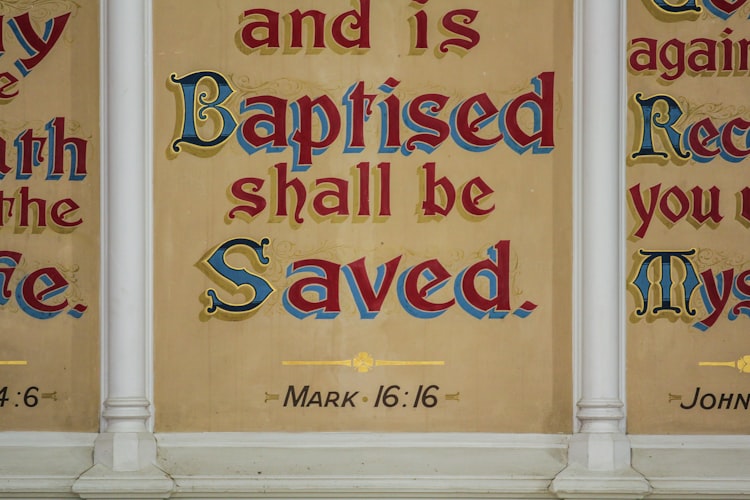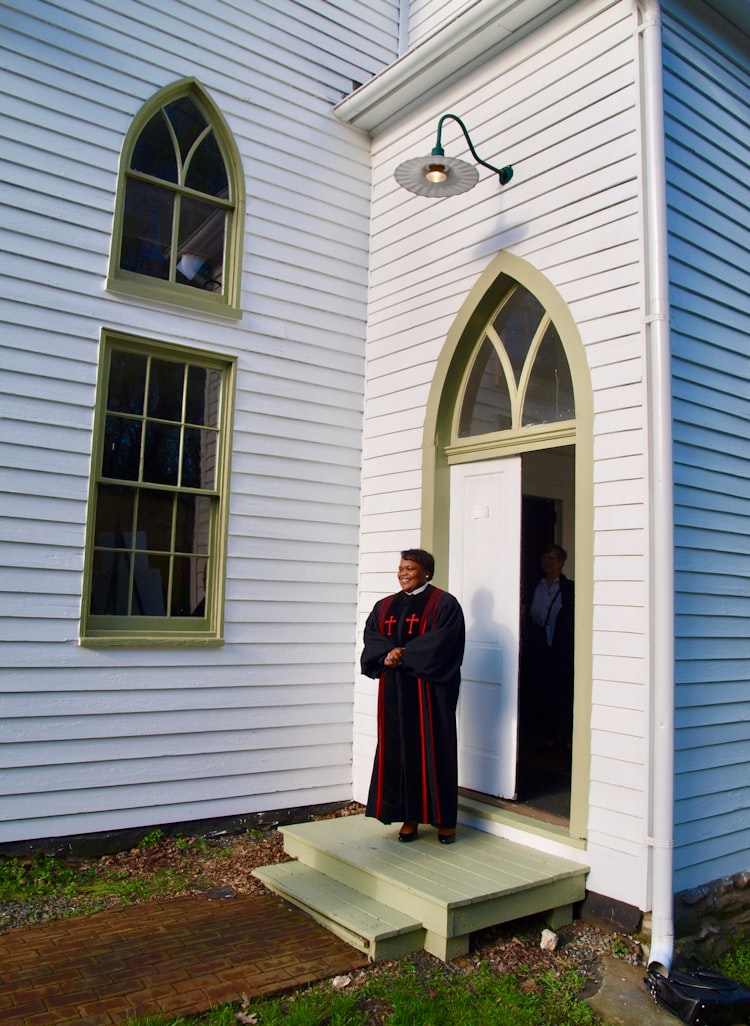Ezra and Ruth
Let me tell you a Bible story. In this story you'll hear why you think the Bible is backwards and xenophobic; but is more progressive than you'll ever be; why we need to listen to our Jewish cousins when we study Scripture; and why chronological Bibles suck.
Ezra 9 tells the story of Israel's people returned from exile in Babylon, rebuilding their society in and near Jerusalem. But — gasp — the Israelites are intermarrying with foreign people, including, oh dear God, Moabites.
Priest Ezra, de facto leader of the people, tears out his hair, rips his clothes, and prays to God. He and some other leaders decide that the right thing to do is for the men to divorce the women.
So chapter 10 is a big public city council meeting. They announce that there's going to be mass divorces. Get rid of your foreign wives. There's this great line, "The people trembled because of this order . . . and because of the heavy rain..."
Then the book of Ezra then ends with a public shame list of all the men who had married foreign women. Listed in the Bible for everyone to see. And then the book ends, the very last line, saying that the men divorced the women — and got rid of the children too.
For God. For justice. To "do the right thing."
What an awful, terrible, backwards barbaric book we've got here right?
But hold on...what other biblical books were being composed around the same time as Ezra?
Our Christian Bibles order the Old Testament books roughly (roughly) in chronological order. And, if you want it even more in "order of events," you can go out and buy chronological order Bibles, that supposedly get the stories all in the right place.
But...chronological order isn't all it's cracked up to be. Biblical books were written and edited in particular times and places. The Hebrew or Jewish order of the Hebrew scriptures has this a bit closer to "composition time." And there are also lots of Jewish and Christian scholars who work on telling us when biblical books were composed or edited together. You can tell when a book was written by the style of language, geographical references, etc.
So in the Christian Bible, after the book of Judges, before the book of Samuel and the stories about David, get the book of Ruth.
But in the Jewish bible, Ruth comes just a few books before Ezra. And most scholars believe it was put together around the same time as Ezra.
So, why talk about Ruth?
Because Ruth is one of those dang nag "foreign women." She's someone who the Torah specifically says to reject and kick out of society — a Moabite, ancient enemies of Israel.
But the book of Ruth presents Ruth as a "woman of valor." Boaz, rich, successful Israelite man Boaz takes kindly to Ruth. Ruth even asks, "Why be nice to me since I'm an immigrant?" There's a whole chapter about the relative of Ruth's dead husband refusing to care for her because it will ruin his reputation to marry someone of her foreigner status; but Boaz — called a man of valor — takes her on as wife.
And then Ruth and Boaz become the great-grandparents of King David.
So, if you're reading the bible in "Christian order," you read the story of Ruth...and by the time you get to Ezra, you've probably long forgotten about it.
But if you're reading the Scriptures in the Jewish order, you read the story of Ruth (as well as the story of Esther, a story about a Jewish woman who, because of her sexual relationship with a foreign king saves the Jewish nation!) and THEN you get to Ezra and realize — oh my goodness. Ezra's a jerk. And he's wrong. And he's misunderstood the Jewish Scriptures.
And what I love is that later rabbis and Jewish communities, when putting together a collection of books that would represent their story of wresting with God, PUT THESE STORIES NEXT TO EACH OTHER.
Is the Bible filled with contradictions and back treading and conflict of opinion? Yes, of course it is. That's the point. It's a feature, not a bug. Israel's story is one of tension, being sanctified out from a view that sees God as needing sacrifices and xenophobia. But instead towards a God that desires mercy; that demands care for the widow and orphans, not the creation of them.
Do not settle for shallow, one-dimensional readings of Scripture. The story is far richer, deeper, and open to beauty than we've been told.



Member discussion